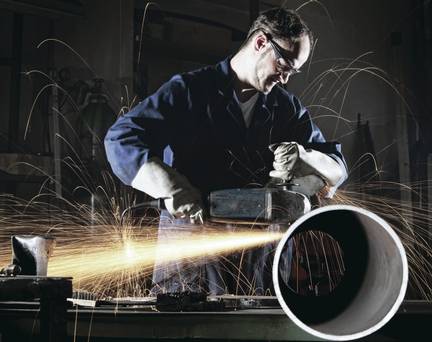Services Boom Leads the Way in Northern Ireland Job Recovery
Services sector roles – in anything from hairdressing and nail art to the legal profession and accountancy – are leading the way in the recovery of the jobs market, according to a report.
The census of employment from the Northern Ireland Statistics and Research Agency (NISRA), which is carried out every other year, said the services sector made the biggest contribution to a net increase in employee jobs of 11,000 between September 2011 and September 2013.
Services contributed around 11,200 new jobs between September 2011 and September 2013, when the latest survey was carried out – but construction lost around 3,500 jobs.
Manufacturing jobs increased by around 1,000 – growth of 1.4%.
Alan Bridle, head of economics and market analysis at Bank of Ireland (UK), said the substantial increase in services jobs was welcome – but he added that more jobs needed to be created in manufacturing to create a balanced economy.
Mr Bridle said: “It’s all very encouraging but under closer scrutiny, looking at the balance of jobs, services accounts for 82%. “In an ideal world, we might look for that to be a little bit lower.
“In just about every developed nation the services sector is expanding – but the sector represents such a myriad of jobs of different values to the economy.”
He said Northern Ireland services firms should, where possible, look to create jobs in ‘tradeable services’ – ie, services which could be traded outside Northern Ireland.
More financial services firms could help, he said – and he cited the example of financial software company First Derivatives, which is based Newry but exports its services.
Manufacturing jobs were also desirable “because ultimately, success depends on making goods and services which someone else is prepared to pay you for.”
Manufacturing jobs also had a multiplier effect on services – ie, an increase in employment numbers at WrightBus in Ballymena meant more people using the town’s shops and cafes.
The services sector also reflected a rise in jobs in personal services – everything from cleaners to nail technicians. “With the recession and the financial crisis, some of those parts of the sector will have been cut back because that type of spending would have been regarded as discretionary. But now with a bit of a recovery, people may feel they have a bit more money for that type of thing.”
Danske Bank chief economist Angela McGowan also said job creation should not be entirely concentrated in services. “In the short-term, people are probably glad to have any job that they can but in the long term you want more of a balance and want to grow manufacturing – and to have tradeable services to sell abroad.
“That is something Northern Ireland has struggled with.”
Dungannon in Co Tyrone was the area with the biggest increases in jobs over the period, with 1,993 new posts in the town.
Manufacturing – which includes chicken processor Moy Park, operator of a large factory in the town – could claim the biggest number of new jobs in Dungannon, at 917.
Background
There were 704,017 employee jobs in Northern Ireland in September 2013 – up 1.6% over two years. Of the 26 district council areas, 18 saw an increase in jobs. Across the province, services added 11,236 jobs, construction fell by 3,548, manufacturing jobs were up 1,034. and jobs in the sector described as ‘other’ grew by 2,212. Overall, all jobs were up 10,934.
Source: belfasttelegraph.co.uk




